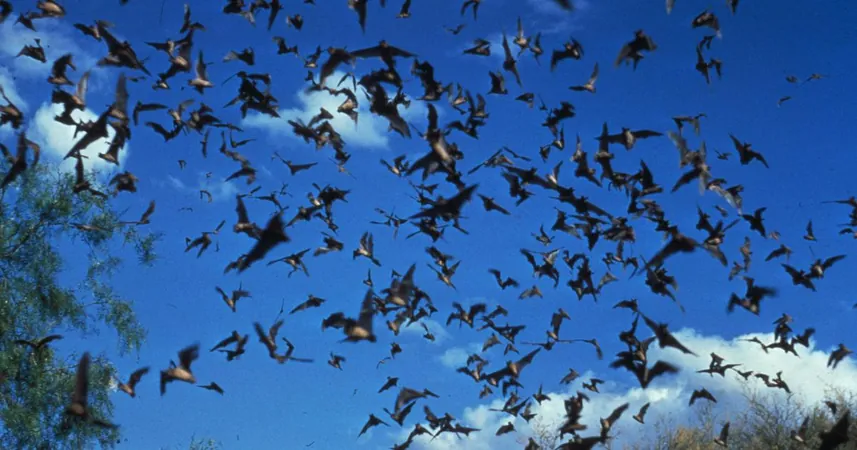
Alarming Link Between Falls and Early Signs of Dementia Revealed by Researchers
2024-09-30
Author: Kai
Study Overview
A recent study has unveiled a startling connection between falls and the early onset of dementia, raising alarm bells for seniors and healthcare providers alike. While many might dismiss a fall simply as an unfortunate aspect of aging, this research indicates that it could be a powerful warning sign of cognitive decline.
Research Findings
Conducted in Boston, the study scrutinized the medical records of over 2.4 million adults aged 65 and older. The results revealed that seniors who were hospitalized due to a fall were a staggering 20 percent more likely to receive a dementia diagnosis within a year compared to their counterparts who experienced different types of injuries.
Importance of Early Intervention
This pivotal finding suggests that older adults who suffer from traumatic injuries should undergo cognitive screenings for potential early signs of dementia, which can often be a precursor to more severe conditions such as Alzheimer’s disease. Dr. Molly Jarman, the senior author of the study and deputy director of the Center for Surgery and Public Health at Brigham and Women's Hospital, emphasized the importance of early intervention. "Our study highlights the opportunity to intervene early and the need for more clinicians who can provide comprehensive care for older adults," she stated.
Connection to Alzheimer’s Disease
Historically, there have been several medications approved that can slow the progression of Alzheimer’s, but their effectiveness is significantly enhanced when treatment begins in the early stages of the disease. Recognizing falls as initial indicators of dementia allows for the potential identification of additional early warning signs that could be used to manage cognitive health effectively.
Study Demographics and Statistics
The analysis incorporated data from Medicare Fee-For-Service and found that among the participants, over half had experienced a fall. The demographic breakdown showed that 91 percent were white, and more than 60 percent were women. Alarmingly, the study indicated that one in ten individuals who had fallen received a dementia diagnosis within a year, in contrast to one in fifteen for those who had different injuries.
Two-Fold Relationship
Dr. Jarman articulated a two-fold relationship between falls and dementia, noting that cognitive decline could increase the risk of falling, while the trauma from falls may also exacerbate the progression of dementia. “Thus, falls could act as precursor events that help identify individuals in need of further cognitive screening,” she concluded.
Recommendations for Healthcare
To combat this rising issue, the researchers suggest that cognitive screenings following falls could aid in detecting dementia at earlier stages, potentially slowing the progression of the disease and enhancing life expectancy. However, Dr. Alexander Ordoobadi, the lead study author and resident physician, pointed out the challenges faced, noting that follow-up cognitive screenings are often overlooked in emergency and trauma settings due to time constraints. He advocates for older adults to receive ongoing care from primary healthcare providers or geriatric specialists after an injury, highlighting that many seniors lack regular access to such care.
Wider Health Implications
As a significant health concern, Alzheimer's disease affects about seven million Americans and nearly one million individuals in the UK. With the ongoing aging population, the importance of recognizing early signs of dementia cannot be overstated. Awareness, early intervention, and streamlined healthcare access are vital steps in addressing this growing epidemic.
Conclusion
Stay tuned as we continue to explore this critical health issue, which affects millions of families worldwide!



 Brasil (PT)
Brasil (PT)
 Canada (EN)
Canada (EN)
 Chile (ES)
Chile (ES)
 España (ES)
España (ES)
 France (FR)
France (FR)
 Hong Kong (EN)
Hong Kong (EN)
 Italia (IT)
Italia (IT)
 日本 (JA)
日本 (JA)
 Magyarország (HU)
Magyarország (HU)
 Norge (NO)
Norge (NO)
 Polska (PL)
Polska (PL)
 Schweiz (DE)
Schweiz (DE)
 Singapore (EN)
Singapore (EN)
 Sverige (SV)
Sverige (SV)
 Suomi (FI)
Suomi (FI)
 Türkiye (TR)
Türkiye (TR)